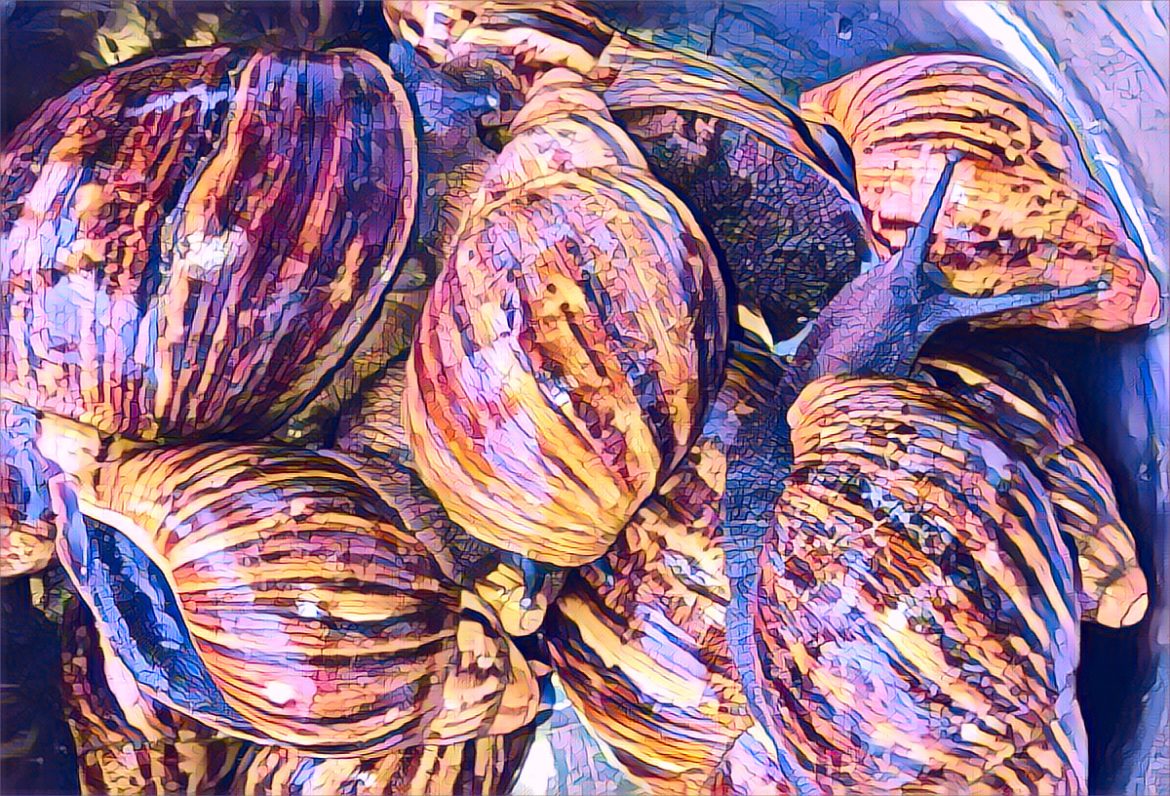For Ghanaians with a taste for snails, a popular delicacy, there’s a bitter truth to swallow: their beloved dish is becoming increasingly expensive. This price hike can be attributed to several factors, including the slow growth rate of snails and the limited number of suppliers in the country.
Slow Growth, High Feeding Costs
A key reason behind the high price tag is the time it takes for snails to mature. Juliana Nyamesah, a snail farmer interviewed by The Mirror, explains that a snail can take up to two years to reach full size and be ready for market. This extended growing period translates to significant investment in time and resources for farmers.
Nyamesah also sheds light on the cost of feeding snails. Supplying them with a diet of leaves, vegetables, and fruits can quickly add up, especially for large-scale farms. The daily cost per snail can reach up to 5 Ghanaian cedis (GHS).
The limited number of snail farmers in Ghana further exacerbates the price issue. This scarcity creates a situation where demand significantly outstrips supply, pushing prices upwards.
The challenge of finding snails was evident for reporters who visited markets in Accra. After nearly 40 minutes of searching, they only managed to find two vendors selling snails. These vendors had limited quantities available, and their prices reflected the scarcity. One vendor was selling just eight small snails for GHS 20 each.
Challenges and Opportunities in Snail Farming
Despite the challenges, snail farming can be a profitable venture in Ghana. Farmers like Nyamesah and Desmond Adomako have found success in this niche market. Adomako, a snail farmer with over ten years of experience, earns around GHS 600 weekly during the rainy season when snails are more abundant.
However, snail farming isn’t without its difficulties. Snails are sensitive to fluctuations in temperature and humidity, requiring extra care during dry seasons. Additionally, predators like birds, rats, and insects pose a constant threat to snail populations.
The high demand for snails in Ghana presents a clear opportunity for the growth of the snail farming industry. By addressing challenges like limited supply and educating farmers on best practices, Ghana can meet the growing demand for this popular food source.
One potential solution lies in encouraging more Ghanaians to take up snail farming. Educational programs and workshops could equip aspiring farmers with the knowledge and skills needed to raise snails successfully. Additionally, providing financial assistance or subsidies could help offset the initial investment costs associated with starting a snail farm.
Source: Graphic Online




